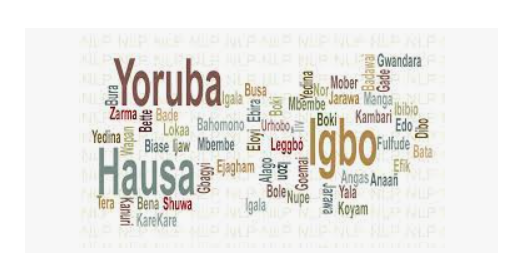Estimates from linguists show that we are living in a time of mass language extinction, with one language going extinct every two weeks.
Conservative estimates also suggest that more than half of the world’s languages will become extinct by 2100.
Other calculations predict that up to 95 per cent of the world’s languages may become extinct or seriously endangered by the end of this century.
Across Africa, language digital activists are now playing a pro-active role in advocating for a multilingual web that aims to ensure that the information available on the internet is as diverse as the languages that exist on the continent.
Read Also: Recovering the small London in Festac Town
Using a do-it-yourself approach, language activists are making use of a variety of digital tools to tweet, localise software, create audiovisual materials and contribute to Wikimedia projects in their mother tongues.
Indigenous languages are not only methods of communication, but also extensive and complex systems of knowledge that have developed over the millennia.
They are central to the identity of indigenous people, their cultures, world views, visions and an expression of self-determination.
Linguists and digital activists in Africa, however, attributed the reason for the gradual extinction of indigenous languages to the colonial mentality syndrome.
Although Africans gained independence from the colonial masters a very long time ago, Africans held on to their languages and kept using them as a means of communication.
The languages of the land are not duly recognized in the cities, in government and even in schools, except in rural communities.
As a continent, Africans need to start communicating on the internet using their indigenous languages to save it from extinction.
Similarly, some experts at the just concluded AfricaNXT 2022, formally known as Social Media Week, shared the view of using digital activism to save indigenous languages.
Founder of Yobamoodua Cultural Heritage, Mr Adeshina Ayeni, pointed out the need for African youths to use digital activism to give African languages visibility on the internet.
Ayeni, who is also a Volunteer at Global Voices, said the inadequacy of available content in African indigenous languages and lack of youth participation in linguistic diversity on the internet cause marginalisation of African languages on the web.
He said that the danger of the relegation of African languages under the guise of globalisation was that several indigenous practices, beneficial to both the local and global communities were overlooked in favour of the foreign ones.
Ayeni noted that it is very sad that Africans now take pride in the proficiency of imported languages at the expense of a sound knowledge of their own mother tongue for written communication.
“There is need for youths to interact in their local dialects on Instagram, Facebook and other social media platforms to give African languages visibility on the internet and drive profound change in the African digital world.
“We need young people to have the zeal and interest in language promotion and there should be the adequacy of content in indigenous languages on the web.
“Also, I don’t see anything wrong in making cartoons in indigenous languages so that children can learn and speak fluently,” Ayeni said.
He, however, said that there are inadequate digital tools in African languages, urging software developers to create digital tools in African languages to save it from extinction.
Ayeni said that the effects of the continued dominance of English and French was resulting in unfavourable attitudes to African languages.
On Nigeria, he said: “We have about 500 languages, most of which are affected by local and global languages.”
According to Ayeni, the loss of a language translates into the loss of an entire system of knowledge, communication, and beliefs, hence, the need for revitalising Nigerian languages through digital activism.
Similarly, Mr Yinka Iyinolakan, Founder of Center for Digitisation of Indigenous African Languages (CDIAL), a non-governmental organisation, reiterated the need to deploy technology in propagating indigenous languages to save it from extinction.
Iyinolakan noted that there was a need for indigenous language revitalisation and accessibility through the help of technology.
“Government can encourage recording and archiving audio files of elders and fluent indigenous speakers to teach the upcoming generations.
“Local software developers can also come up with apps that can teach the younger generations with indigenous language.”
Iyinolakan added that government should also encourage local software developers with grants to develop apps that would make access to indigenous language learning possible on mobile devices.
Also speaking, Mr Oyelakin Omolewu, Manager, Brand Events and Sponsorships, Stanbic IBTC Holdings Plc, stressed the need for provision of internet access for youths in rural areas to effectively learn and interact with indigenous language.
Omolewu urged service providers like banks, hotels, supermarkets and other related outfits to create customer service desks which use indigenous languages to attend to customers that prefer to use their local language as means of communication.
While contributing to the importance of preserving local languages, an illustrator Ms Yadichinma Ukoha-Kalu, said that it is vital to create awareness about African languages to educate people.
Ukoha-Kalu said she chose to sensitise the public about the importance of indigenous languages by telling stories with fabric, textile designs and arts on the digital space.
The illustrator said that digitising indigenous languages could help foster the creation and inclusion of African themed stickers and images in the digital space.

